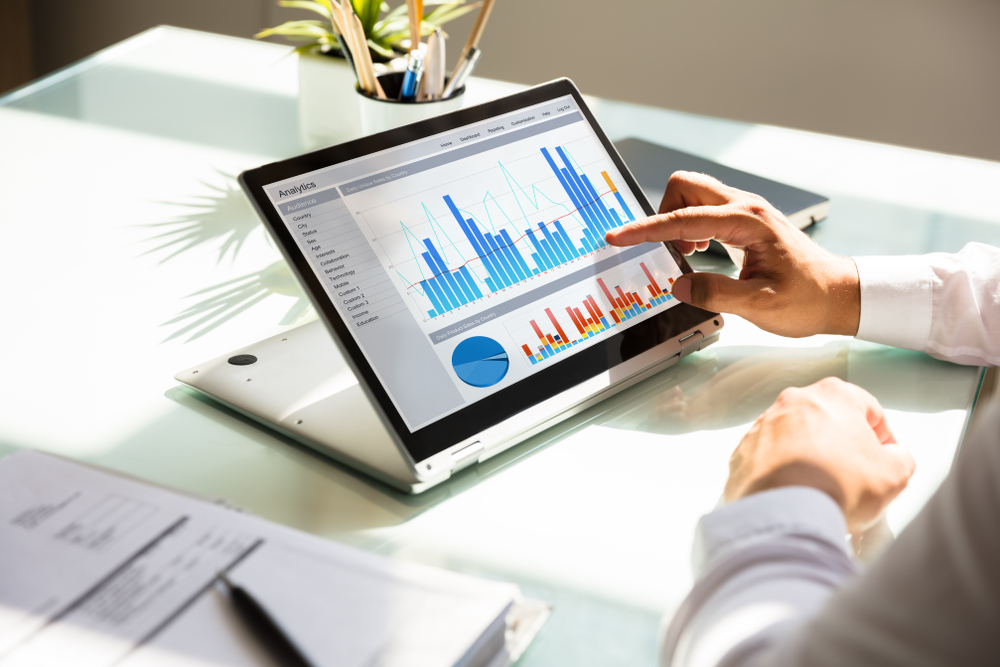
Get Paid to Share Your Expertise
Help shape the future of business through market research studies.
See Research StudiesAccording to a 2017 United Nations report, the collection of data accounts for more than 100 million of the world’s jobs and 6.5 percent of global GDP.
Over time those numbers will continue to grow. As technology improves, so the thinking goes, firms will be able to harvest data with greater efficiency, potentially increasing the capacity for growth in the data economy.
But according to Laura Veldkamp, the Leon G. Cooperman Professor of Finance & Economics, analysts and economists might be overestimating the ability of data to sustain long-run growth, which has implications for how data should be valued today.
In “A Growth Model of the Data Economy,” a working paper co-authored with Maryam Farboodi of MIT, Veldkamp argues that it is misguided to equate the possibilities available through the growth of data with the infinite possibilities inherent in the idea and technology economy. Instead, they demonstrate that data collection is more like traditional capital accumulation—with theoretical roots in the old industrial economy—which they claim cannot sustain growth in the long run.
“One view of the economics of the 20th century is that economic growth could be sustained by idea accumulation,” she says. “Equating data to ideas makes the argument that more data would result in infinite growth. We’re saying, ‘Hold on a second, is data like ideas or is it more like capital?’”
Firms collect data mainly through algorithms that keep track of economic activity — buying and selling things — something that is significantly less costly than manufacturing a traditional product or creating something new in a laboratory.
The collected data is then used as a prediction device to forecast everything from fluctuations in the stock market to consumer behavior.
As data collection technology continues to improve and prediction models become more accurate, data accumulation will, according to Veldkamp, result in diminishing returns.
 “Having more and more data, logically, will get you closer and closer to perfect information,” Veldkamp says. “But perfect forecasts have a finite value, therefore, data yields a finite benefit. There is no limit to human creativity, but there is a limit to how far artificial intelligence can improve our decision-making.”
“Having more and more data, logically, will get you closer and closer to perfect information,” Veldkamp says. “But perfect forecasts have a finite value, therefore, data yields a finite benefit. There is no limit to human creativity, but there is a limit to how far artificial intelligence can improve our decision-making.”
Veldkamp says her paper elucidates a connection between the modern economy and the changes in manufacturing that took place during the Industrial Revolution.
Before industrialization, most products were made on an artisanal basis.
“If you wanted a tin cup, you would bring tin to a smith and he would make you one,” Veldkamp says. “Even if you brought him a ton of tin, he’s not going increase his productivity by much.”
This, she says, is like a firm possessing a large dataset, but without the technology to optimize its use. That firm would craft an artisanal model to interpret the data. For example, such a model might include five variables and interact with two of them.
The “industrial revolution,” in Veldkamp’s analogy, is that we no longer need lots of human labor for model creation.
“Our machines can turn data into knowledge like factories turn tin into cups,” she says.
Now that technology can use vast quantities of data effectively, it would seem to indicate that data might increase in value.
But finding the value of data remains a tricky business.
“There are market values put on companies that own a lot of data, but frankly those are guesses,” Veldkamp says. “Sometimes the value of data is its price on the market.”
Other times data is valued by cost of its production, but even then, it’s not always clear. In the realm of internet shopping the data generated is often a byproduct of the transaction.
“If I bought something from Amazon and while buying it, I reveal that I like paper cups, I live in New York City, and that I paid with a debit card,” Veldkamp says, “what did it cost them to get that data? Is it the cost of the cups? Not really.”
Veldkamp’s model provides economists with parameters that helps them understand the value of data, but she says there’s still plenty of work to be done.
“We’re starting to get a grip on the question, but there’s no easy answer.”
Read the original piece on Columbia Business School’s Ideas and Insights blog.
Ivy Exec is proud to announce its partnership with Columbia Business School, to bring an insightful collection of thought leadership pieces for the modern-thinking strategist in finance, leadership and more to its platform.

 Columbia Business School
Columbia Business School